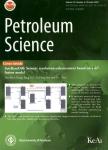Analysis and calculation model of energy consumption and product yields of delayed coking units
Analysis and calculation model of energy consumption and product yields of delayed coking units作者机构:State Key Laboratory of Heavy Oil ProcessingChina University of PetroleumBeijing 102249China
出 版 物:《Petroleum Science》 (石油科学(英文版))
年 卷 期:2012年第9卷第1期
页 面:100-105页
核心收录:
学科分类:080706[工学-化工过程机械] 080702[工学-热能工程] 08[工学] 0807[工学-动力工程及工程热物理]
基 金:The authors would like to thank Lin Min and Dou Liyuan for their help in data collection
主 题:Delayed coking energy consumption product yield model
摘 要:Delayed coking is an important process consumption and light oil yield are important factors used to convert heavy oils to light products. Energy for evaluating the delayed coking process. This paper analyzes the energy consumption and product yields of delayed coking units in China. The average energy consumption shows a decreasing trend in recent years. The energy consumption of different refineries varies greatly, with the average value of the highest energy consumption approximately twice that of the lowest energy consumption. The factors affecting both energy consumption and product yields were analyzed, and correlation models of energy consumption and product yields were established using a quadratic polynomial. The model coefficients were calculated through least square regression of collected industrial data of delayed coking units. Both models showed good calculation accuracy. The average absolute error of the energy consumption model was approximately 85 MJ/t, and that of the product yield model ranged from 1 wt% to 2.3 wt%. The model prediction showed that a large annual processing capacity and high load rate will result in a reduction in energy consumption.



